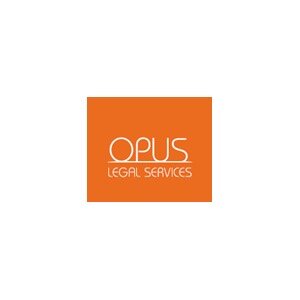Best Housing, Construction & Development Lawyers in Iceland
Share your needs with us, get contacted by law firms.
Free. Takes 2 min.
Free Guide to Hiring a Real Estate Lawyer
Or refine your search by selecting a city:
List of the best lawyers in Iceland
About Housing, Construction & Development Law in Iceland
Iceland, known for its breathtaking landscapes and unique natural environment, also has a distinct approach to housing, construction, and development. This legal field regulates how residential, commercial, and industrial properties are developed, maintained, and managed. The laws governing these activities cover a wide range of issues, such as zoning, land use planning, environmental protection, property transactions, and construction standards. The main goal is to ensure that development projects are carried out in a sustainable and efficient manner, benefiting both the inhabitants and the environment.
Why You May Need a Lawyer
There are several situations where individuals or businesses may require legal assistance in the field of housing, construction, and development:
- Property Transactions: Navigating the complexities of buying or selling property can often require legal expertise to ensure all contracts are legally binding and all parties' rights are protected.
- Disputes: Conflicts may arise between landlords and tenants, contractors and developers, or between property owners over boundaries or land use, requiring mediation or litigation.
- Regulatory Compliance: Ensuring that all construction activities comply with local zoning laws, building codes, and environmental regulations.
- Project Development: Large-scale construction projects often require legal guidance for permits, financing, and adhering to development regulations.
- Lease Agreements: Drafting or reviewing lease agreements to ensure they meet legal requirements and protect the interests of landlords or tenants.
Local Laws Overview
Key aspects of local laws in Iceland related to housing, construction, and development include:
- Zoning Laws: These laws dictate how land can be used in different areas, ensuring that industrial, commercial, and residential activities are properly separated.
- Building Regulations: Standards must be met regarding the design, structural integrity, safety, and environmental impact of construction projects.
- Environmental Protections: Iceland has strict laws to protect its natural resources and environment, influencing all stages of development.
- Land Ownership: The laws governing land ownership can affect foreign investment and land transactions.
- Planning Permits: A necessary approval process for property development to ensure that projects align with national and local standards.
Frequently Asked Questions
What are the prerequisites for purchasing property in Iceland?
Generally, both Icelandic citizens and foreign nationals can purchase property in Iceland, although non-residents may face more stringent requirements and approvals, especially for farmland or properties in sensitive areas.
How does one apply for a building permit?
Applications for building permits are submitted to the local municipality, where the planning office checks compliance with regulations before approval.
What recourse is available if a construction dispute arises?
Disputes can be resolved through negotiation, mediation, or, if necessary, litigation in an Icelandic court.
How long is a typical lease agreement in Iceland?
Lease terms can vary, but residential leases are commonly set for one year with an option for renewal, subject to both parties' agreement.
Are there specific building codes for energy efficiency?
Yes, Iceland has national standards for energy efficiency in buildings to promote sustainability and reduce environmental impact.
What considerations are there for developing land near protected areas?
Development near protected areas requires adherence to strict environmental regulations and often requires additional permits and assessments.
Can foreign companies participate in Icelandic construction projects?
Yes, foreign companies can engage in construction projects, provided they comply with local regulations and obtain necessary permits.
What is the process for appealing a planning decision?
Decisions can be appealed to the Ministry of the Environment if someone believes their interests have been harmed or due process was not followed.
What role do municipalities play in property development?
Municipalities are responsible for local planning and building regulation enforcement, issuing development permits, and zoning decisions.
Are there tax incentives for sustainable development?
Iceland offers incentives for projects that aim for sustainability and environmental protection, encouraging the use of renewable energy and sustainable practices.
Additional Resources
Here are some resources and bodies where you can find more information and assistance:
- The National Planning Agency: Offers guidance on planning and development rules in Iceland.
- Ministry for the Environment and Natural Resources: Oversees environmental laws and regulations relevant to construction and development.
- Icelandic Association of Real Estate Agents: Provides resources and guidance for property transactions.
- Local Municipalities: Each locality has its own office that can provide specific information about zoning and permits.
- Icelandic Bar Association: A professional body that can help you find a qualified lawyer in housing, construction, and development law.
Next Steps
If you need legal assistance in housing, construction, or development, consider reaching out to one of the following:
- Contact a Lawyer: Engage with a legal professional specializing in Icelandic property and construction law to discuss your specific needs.
- Consult Government Offices: Approach relevant governmental bodies or municipal offices for advice and clarification on rules and regulations.
- Research Online: Access online resources and legal portals specializing in housing and development law in Iceland.
Ensuring you have the right advice and support is crucial, whether you're involved in a complex development project or a simple property transaction. Understanding the legal landscape in Iceland helps protect your interests and enables informed decision-making.
Lawzana helps you find the best lawyers and law firms in Iceland through a curated and pre-screened list of qualified legal professionals. Our platform offers rankings and detailed profiles of attorneys and law firms, allowing you to compare based on practice areas, including Housing, Construction & Development, experience, and client feedback.
Each profile includes a description of the firm's areas of practice, client reviews, team members and partners, year of establishment, spoken languages, office locations, contact information, social media presence, and any published articles or resources. Most firms on our platform speak English and are experienced in both local and international legal matters.
Get a quote from top-rated law firms in Iceland — quickly, securely, and without unnecessary hassle.
Disclaimer:
The information provided on this page is for general informational purposes only and does not constitute legal advice. While we strive to ensure the accuracy and relevance of the content, legal information may change over time, and interpretations of the law can vary. You should always consult with a qualified legal professional for advice specific to your situation.
We disclaim all liability for actions taken or not taken based on the content of this page. If you believe any information is incorrect or outdated, please contact us, and we will review and update it where appropriate.
Browse housing, construction & development law firms by city in Iceland
Refine your search by selecting a city.













